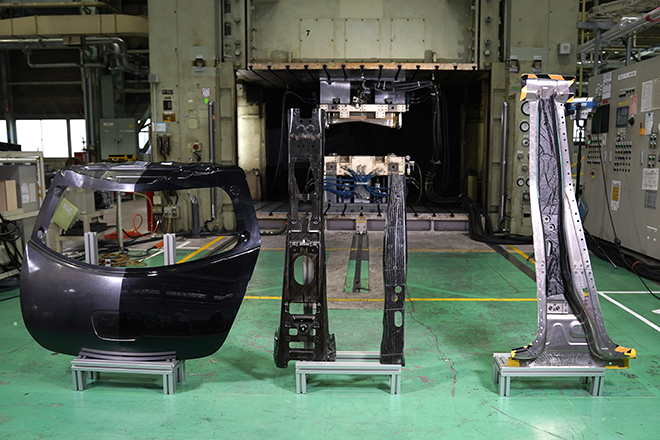Carbon fiber reinforced plastic (CFRP) was once seen as an ideal body material for EVs, because of its high strength and light weight. It was used in the Tesla Roadster and the BMW i3, but fell out of favor because of its high cost. Now Nissan has developed a new production process that speeds up the development of CFRP car parts.
Nissan aims to use the new process to mass-produce CFRP parts and employ them in more cars. The company says its innovation can cut the lead time to develop such components by as much as half, and cycle time for molding by about 80%, compared with conventional methods.
Nissan found a new approach to the existing production method known as compression resin transfer molding, which involves forming carbon fiber into shape and setting it in a die with a slight gap between the upper die and the carbon fibers. Resin is then injected into the fiber and left to harden.
Nissan’s engineers developed techniques to simulate the permeability of the resin in carbon fiber while visualizing resin flow behavior in a die using an in-die temperature sensor and a transparent die. The result of the simulation was a high-quality component with shorter development time.
Source: Nissan




















































